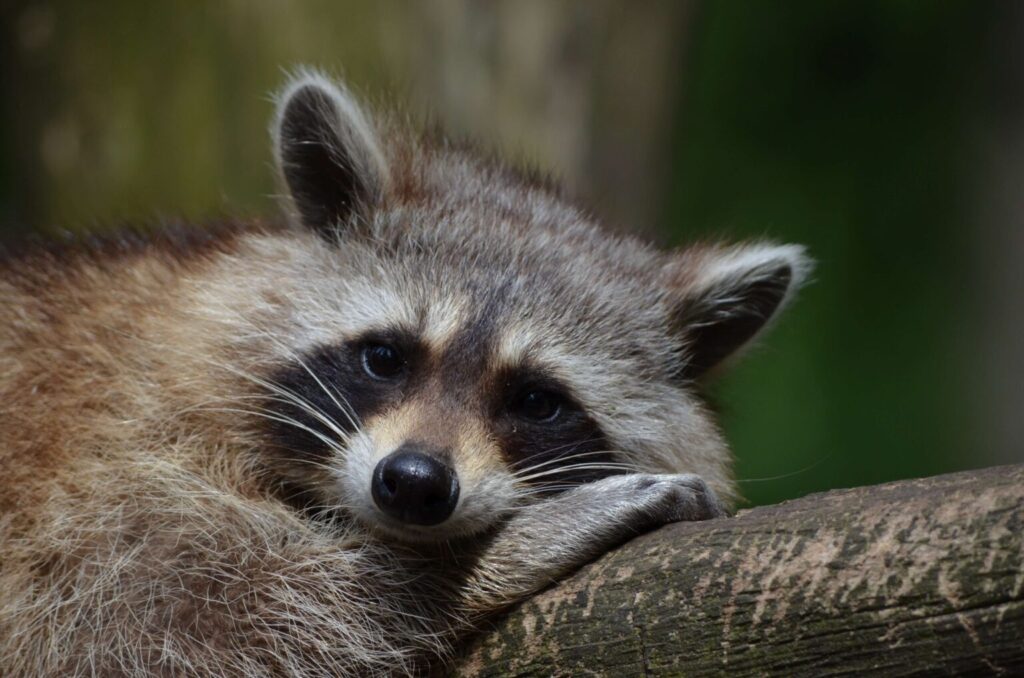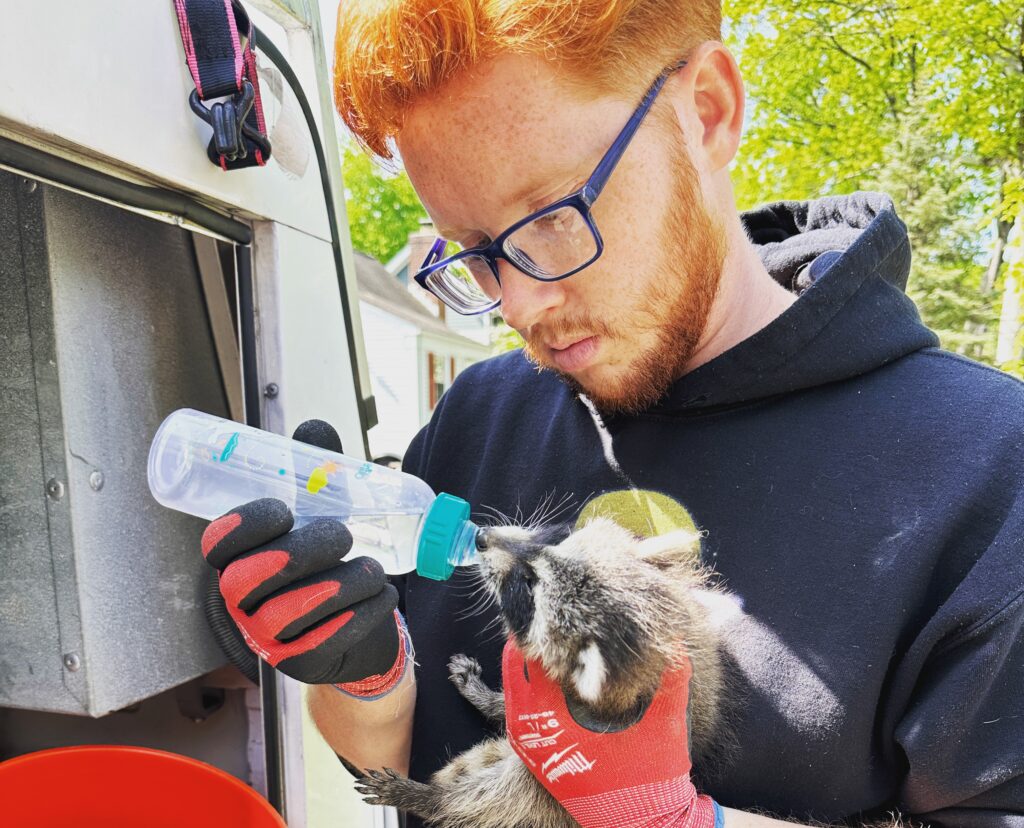New Jersey, with its lush greenery and abundant wildlife, offers a picturesque backdrop for homeowners. However, amidst this natural beauty lurks a common nuisance: raccoons. Raccoon infestations in residential areas across the state have become a prevalent concern for homeowners, prompting the need for effective solutions. In this article, we delve into the realm of raccoon removal specifically tailored to the Garden State – Raccoon Removal NJ.
Raccoons, with their agile nature and knack for scavenging, can wreak havoc on homes and properties. From rummaging through trash bins to nesting in attics, their presence poses not only structural risks but also health hazards to inhabitants. Understanding the behaviors and habits of raccoons is crucial in devising effective removal strategies. Whether you’re faced with signs of their nocturnal visits or grappling with the aftermath of their destructive tendencies, finding ways to coexist with these critters while safeguarding your home is paramount.
Navigating the world of raccoon removal can be daunting for homeowners, but fear not – help is at hand. From DIY methods to professional services, we’ll explore a range of solutions designed to address raccoon infestations in NJ homes. By the end of this article, you’ll be equipped with the knowledge and resources needed to tackle raccoon problems head-on, ensuring peace of mind and a raccoon-free environment for you and your family. So, let’s embark on this journey to reclaim your home from unwanted intruders and rejoice in effective raccoon removal methods that truly work in the Garden State.
Key Takeaways
- Proven raccoon removal methods offer relief for NJ homeowners.
- Effective strategies bring peace of mind against raccoon intrusions.
- Homeowners find solace in reliable raccoon control solutions.
- NJ residents celebrate successful tactics for raccoon eviction.
- Practical approaches bring tangible results in raccoon management.
Understanding Raccoon Behavior and Habit
To effectively tackle raccoon infestations in New Jersey, it’s essential to gain insight into the behavior and habits of these cunning creatures. Raccoons, native to the region, are highly adaptable mammals known for their intelligence and resourcefulness. They are primarily nocturnal, meaning they are most active during the night, which often makes them elusive and challenging to detect.
In residential areas of NJ, raccoons exhibit various behaviors that contribute to their status as pests. They are opportunistic feeders, capable of consuming a wide range of food sources, from fruits and vegetables to garbage and pet food left outdoors. This scavenging behavior often leads them into conflict with homeowners, especially when they raid trash cans or pillage gardens.
Understanding these behaviors and habits is crucial in devising effective raccoon removal strategies tailored to the unique challenges faced by homeowners in New Jersey. By recognizing the patterns of raccoon activity and implementing preventive measures, such as securing potential entry points and eliminating food sources, residents can significantly reduce the risk of infestation and mitigate the associated risks to property and health. So, by comprehending raccoon behavior, NJ homeowners can take proactive steps towards successful raccoon removal and safeguard their homes from future intrusions.
Identifying Signs of Raccoon Infestation in Your NJ Home
Recognizing the signs of raccoon infestation is crucial for homeowners in New Jersey to address the problem effectively. While these masked bandits may be elusive, they leave behind telltale indicators of their presence.
One of the most common signs of raccoon activity is visual evidence around your property. Keep an eye out for overturned trash cans, scattered garbage, or damage to gardens, as raccoons are notorious for scavenging through outdoor areas in search of food. Additionally, tracks or paw prints in mud or snow can provide clues to recent raccoon visits.
Auditory and olfactory cues can also help identify raccoon infestations. Listen for sounds of movement or scratching coming from attics, crawl spaces, or chimneys, especially during the night when raccoons are most active. Moreover, the strong, pungent odor of raccoon urine and feces may permeate indoor areas where they have taken up residence, signaling a potential infestation.

DIY Raccoon Removal Methods for NJ Homeowners
For New Jersey homeowners dealing with raccoon infestations, there are several effective do-it-yourself (DIY) methods to consider before seeking professional assistance. One of the first steps is to secure potential entry points around your home, such as gaps in attics, vents, or under decks. Blocking these access points with sturdy materials like wire mesh or hardware cloth can prevent raccoons from gaining entry and nesting indoors.
Non-lethal deterrents can also be employed to discourage raccoons from frequenting your property. Bright lights, motion-activated sprinklers, or loud noises can startle and deter raccoons, making your home less attractive to them. Additionally, applying natural repellents such as ammonia-soaked rags or commercial repellent sprays near entry points can further discourage raccoons from lingering.
Homemade remedies using common household items can also help in raccoon removal efforts. Mixing equal parts of ammonia and water to create a potent repellent spray can be effective in deterring raccoons from specific areas. Similarly, sprinkling cayenne pepper or using garlic-based solutions around trash cans or garden beds can deter raccoons due to their strong odor and taste.
Professional Raccoon Removal Services in NJ
When DIY methods fall short or when dealing with extensive raccoon infestations, enlisting the help of professional raccoon removal services in New Jersey is often the most effective solution. Licensed wildlife control experts have the knowledge, experience, and specialized tools necessary to address raccoon infestations safely and efficiently.
One of the primary advantages of professional raccoon removal services is their ability to conduct thorough inspections of your property to identify entry points, nesting sites, and potential risks associated with raccoon activity. Armed with this information, they can develop customized removal strategies tailored to the unique needs of your home.
Trapping and removal techniques employed by professionals are designed to capture raccoons humanely while minimizing stress and harm to the animals. Live trapping methods, combined with relocation to suitable habitats away from residential areas, are commonly utilized to remove raccoons from homes and properties.
Integrating Raccoon Prevention Measures into Your NJ Home Maintenance Routine
In New Jersey, proactive measures are key to preventing raccoon infestations and ensuring long-term protection for your home and property. By incorporating raccoon prevention measures into your regular home maintenance routine, you can minimize the risk of attracting these pesky critters and deter them from taking up residence on your premises.
Start by conducting regular inspections of your property to identify and seal potential entry points that raccoons may exploit to gain access to your home. This includes inspecting and repairing damaged vents, screens, chimneys, and rooflines, as well as securing gaps around foundations, doors, and windows. By eliminating entry points, you can significantly reduce the likelihood of raccoons nesting indoors.
Additionally, practicing good sanitation habits can help deter raccoons from frequenting your property. Secure trash cans with tight-fitting lids, avoid leaving pet food or birdseed outdoors overnight, and promptly clean up any spilled food or debris in outdoor areas. By removing potential food sources, you can make your home less appealing to raccoons and other wildlife.
FAQs
How can I safely remove raccoons from my property without harming them?
To safely remove raccoons, consider using humane trapping methods or deterrents such as bright lights, loud noises, or natural repellents like ammonia-soaked rags. Once trapped, contact local wildlife authorities for guidance on relocating the raccoons to suitable habitats away from residential areas.
Are there any legal regulations I need to consider when attempting raccoon removal in NJ?
Yes, New Jersey has regulations governing the removal and relocation of wildlife, including raccoons. It’s important to familiarize yourself with these regulations to ensure compliance and avoid legal repercussions. In many cases, it’s best to enlist the services of licensed wildlife control professionals who are knowledgeable about local laws and regulations.
What steps can I take to prevent raccoons from returning to my home after removal?
To prevent raccoons from returning, seal off entry points around your home, secure trash cans with tight-fitting lids, and eliminate food sources such as pet food or birdseed left outdoors. Additionally, consider installing motion-activated lights or sprinkler systems to deter raccoons from approaching your property.
When should I consider hiring professional raccoon removal services in New Jersey?
You should consider hiring professional raccoon removal services if DIY methods prove ineffective, or if you’re dealing with extensive raccoon infestations that pose health and safety risks. Professional wildlife control experts have the expertise and tools to safely and effectively remove raccoons from your property while ensuring compliance with local regulations.
What diseases can raccoons carry?
Raccoons can carry diseases such as rabies, distemper, and roundworm, which can be transmitted to humans and pets through bites, scratches, or contact with feces. It’s essential to exercise caution when dealing with raccoons and seek medical attention if bitten or scratched.
Conclusion
In the Garden State, dealing with raccoon infestations demands a comprehensive approach. By understanding raccoon behavior, identifying signs of infestation, and integrating prevention measures into your home maintenance routine, you can mitigate risks and protect your property. Whether opting for DIY methods or seeking professional assistance, prioritizing humane removal practices and adherence to NJ wildlife regulations is paramount. Raccoon removal in NJ isn’t just about eliminating pests; it’s about ensuring the safety and well-being of both residents and wildlife.
As you navigate the challenges of raccoon infestations, remember that help is readily available. Kritter Catchers offers expert raccoon removal services tailored to the unique needs of New Jersey homeowners. With their experience and dedication to humane wildlife management, you can trust them to effectively address raccoon issues and restore peace to your home. Take action today and reclaim your space from unwanted intruders. Call Kritter Catchers now at (973) 747-5455.


